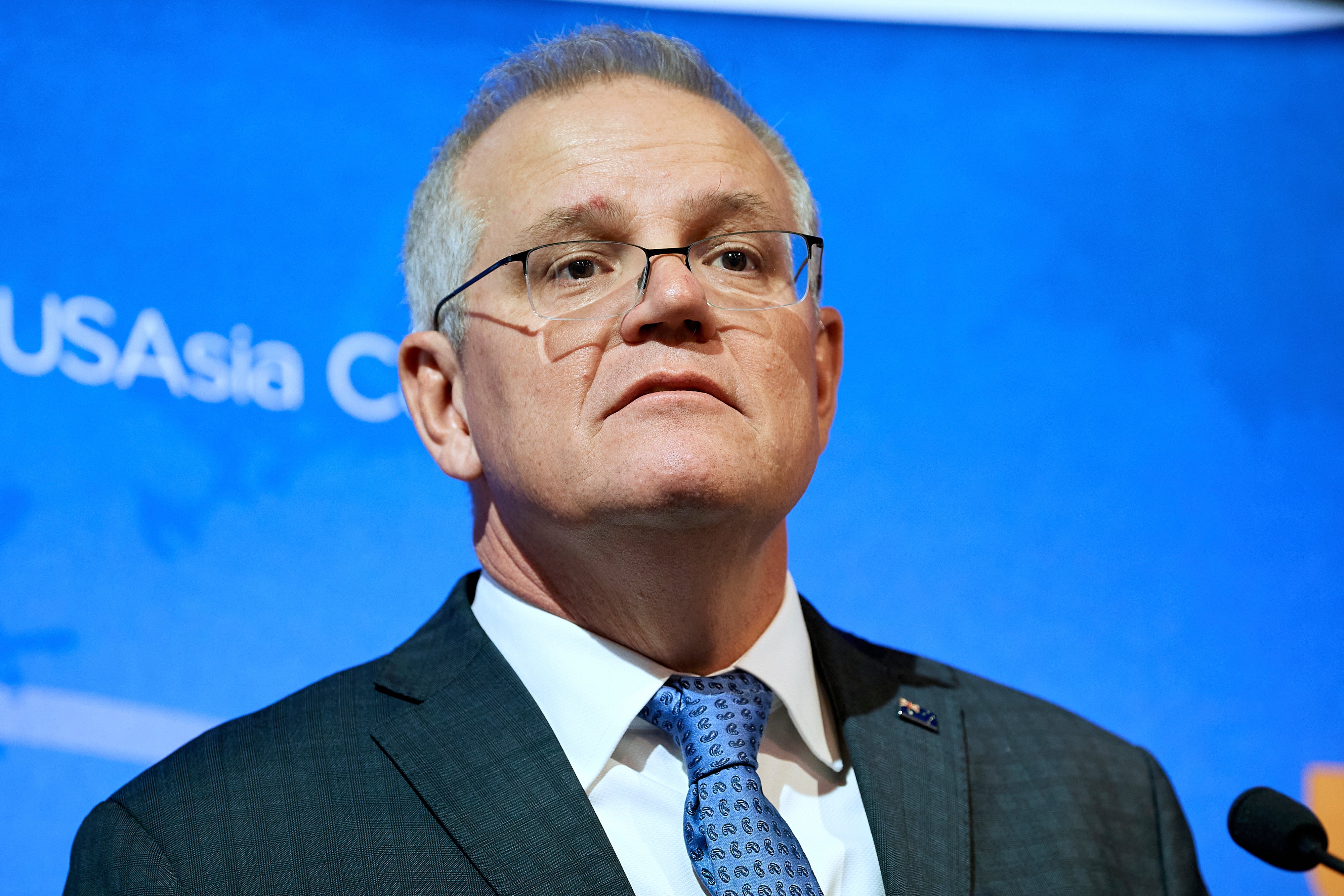Australia says WTO should punish Chinese economic coercion
Australia's prime minister says the World Trade Organization should penalize China for “bad behavior when it occurs.”

Your support helps us to tell the story
From reproductive rights to climate change to Big Tech, The Independent is on the ground when the story is developing. Whether it's investigating the financials of Elon Musk's pro-Trump PAC or producing our latest documentary, 'The A Word', which shines a light on the American women fighting for reproductive rights, we know how important it is to parse out the facts from the messaging.
At such a critical moment in US history, we need reporters on the ground. Your donation allows us to keep sending journalists to speak to both sides of the story.
The Independent is trusted by Americans across the entire political spectrum. And unlike many other quality news outlets, we choose not to lock Americans out of our reporting and analysis with paywalls. We believe quality journalism should be available to everyone, paid for by those who can afford it.
Your support makes all the difference.The World Trade Organization should penalize “bad behavior when it occurs,” Australia's prime minister said Wednesday ahead of a Group of Seven leaders’ meeting in Britain where he hopes to garner support in a trade dispute with China.
Prime Minister Scott Morrison said Australia would be “working with others to buttress the role of the World Trade Organization and to modernize its rulebook where necessary.”
“In my discussions with many leaders, I’ve taken great encouragement from the support shown for Australia’s preparedness to withstand economic coercion in recent times,” Morrison said in a speech delivered in the Australian west coast city of Perth before leaving for the G7 meeting in Cornwall.
The Australian government announced in December it would ask the WTO to intervene in its dispute with China over barley and expects other nations to become involved in the case.
China effectively ended imports of Australian barley in May 2020 by putting tariffs of more than 80% on the crop, accusing Australia of breaching WTO rules by subsidizing barley production and selling the grain in China at below production cost.
Trade in Australian seafood, wood, beef, wine and coal has also been disrupted since Australia angered China by requesting an independent inquiry into the origins of the coronavirus pandemic.
The Geneva-based WTO, which makes rules governing international trade, is facing calls for restructuring and reform as it struggles to forge a long-awaited world trade pact.
“A well-functioning WTO that sets clear rules, arbitrates disputes objectively and efficiently penalizes bad behavior when it occurs. This can be one of the most powerful tools the international community has to counter economic coercion,” Morrison said.
U.S. Secretary of State Antony Blinken said last month the United States will not leave Australia alone to face coercion from China and that such behavior toward U.S. allies will hamper improvement in relations between Washington and Beijing.
Morrison said in his speech the most practical way to address economic coercion would be to restore the WTO’s binding dispute settlement system.
“Where there are no consequences for coercive behavior, there is little incentive for restraint,” Morrison said.
The G-7 meeting “provides an opportunity to point a way forward” at a WTO ministerial conference on trade reforms in November, he said.